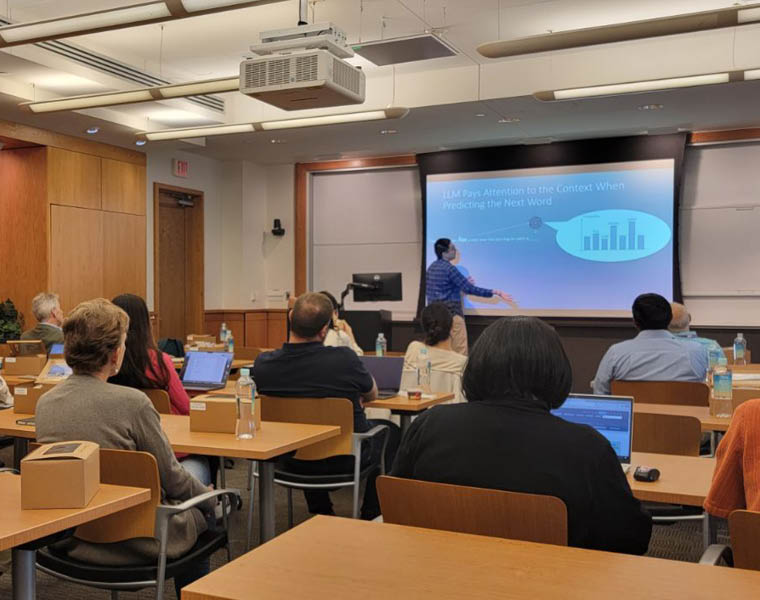Students who aren’t able to get online with the same consistency as their classmates are projected to have more severe learning loss and are more likely to drop out of school. This digital divide occurs when there is a chasm between those who have access to modern information and communications technology and those that don't or have restricted access to personal computers and internet connectivity. Statistics show those who lack access to devices and broadband services have GPAs that are lower than their peers with reliable access.
To rectify this issue, one Fort Worth organization is taking action. The Atatiana Project holds an annual summer camp in which children with limited or no computer access receive a free laptop to utilize for furthering their education. Established by Ashley Carr for her late sister, Atatiana Jefferson, who was tragically killed in her home by a Fort Worth police officer in 2019, the Atatiana Project works to create a livable environment between the urban community and the police. Jefferson graduated with a degree in biology and had hopes of going back to school, becoming a doctor and helping find a cure for diabetes, with which she had been diagnosed at a young age.
Fifty students attended the summer camp held from June 13-17. That’s more than triple the number of children that participated last year. The focus of this year's camp was robotics and digital literacy. Kids in the older age groups built their own robots and then programmed the robots to complete a maze. Younger campgoers worked with robots that could react to different stimuli with various movement, noises, and light displays, and they created their own sequences for the robots to carry out. Professors who participated wanted to provide a tactile learning experience for students.
Emily Herzig, an instructor in the Department of Mathematics, was involved again this year in leading classes at the camp. She says, “The Atatiana Project focuses on providing [coding and digital literacy] skills to members of demographics that are underrepresented in STEAM. If we want to increase diversity and equity in academia and tech fields, we must actively work to level the playing field. We need to provide resources, mentorship, and experience to underserved populations. This camp accomplishes that by providing computers for the kids to keep, and hands-on experience with coding and a variety of other STEAM activities across the entire campus.”
Carr says that having the camp on TCU campus is a great benefit because it makes the thought of going to college tangible and no longer a fantasy for many of these children. She says, "Atatiana was a person that always felt like she could master anything and wanted those feelings for everyone connected to her. The Atatiana Project summer camp is us taking the torch Atatiana had already lit and showing the next generation that they don't have to sit on the sideline and watch, but they can do. Through the camp, we are able to keep the legacy of Atatiana alive."
Learn more about The Atatiana Project.





